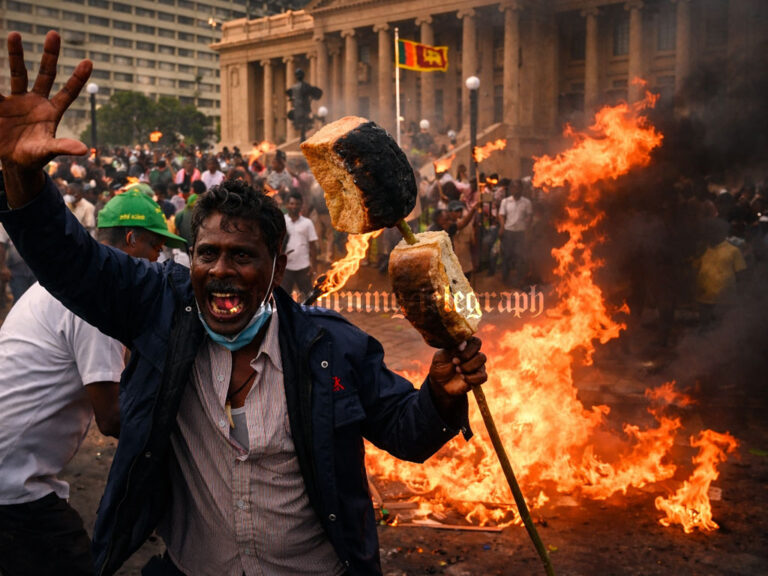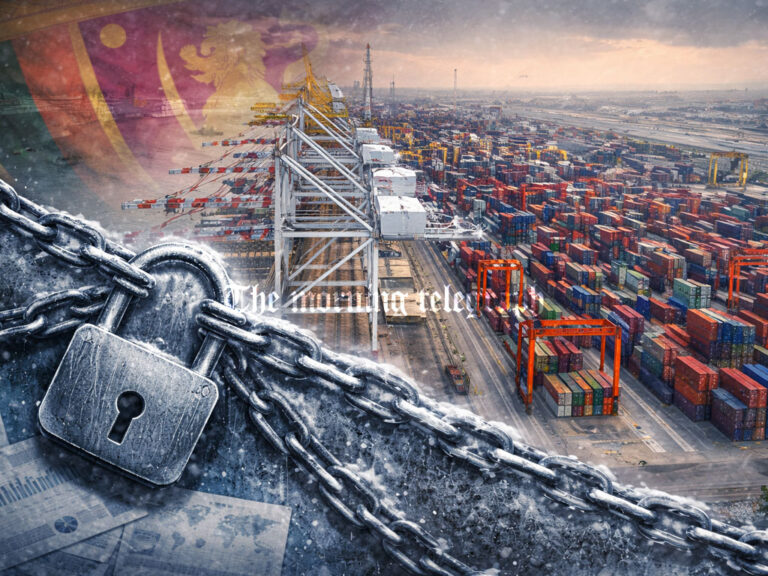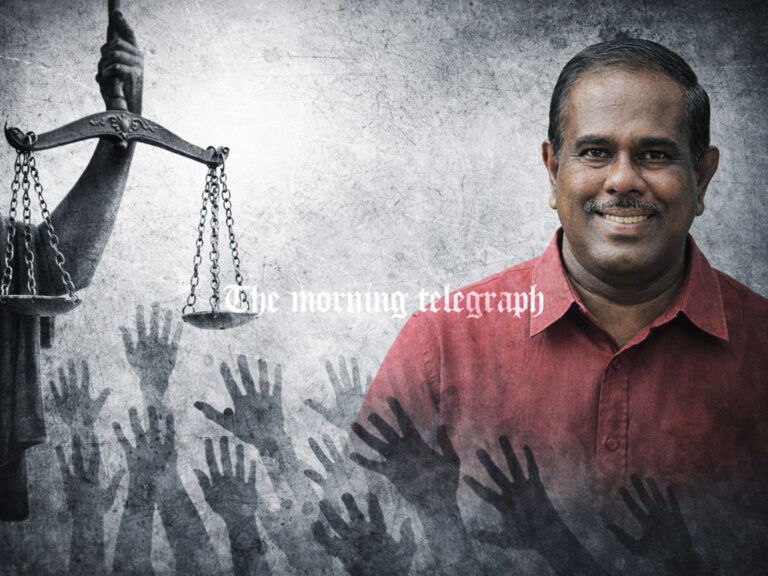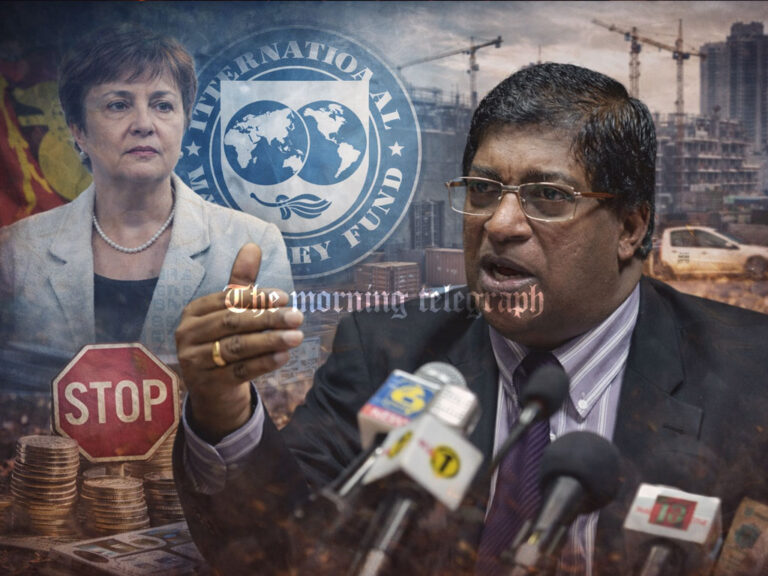
Colombo, Sri Lanka – United Republic Front leader, MP Patali Champika Ranawaka, held a fiery press conference today, launching a comprehensive critique of the Janatha Vimukthi Peramuna (JVP), specifically targeting their longstanding revolutionary ideology and key aspects of their manifesto. The attack centered around what Ranawaka described as “dangerous and regressive” ideas that have persisted within the JVP, despite their public repositioning as a modern political force.
Ranawaka, known for his sharp rhetoric and detailed political analyses, directly addressed JVP leader Anura Kumara Dissanayake and General Secretary Tilvin Silva. He raised serious concerns about the JVP’s historical links to militancy and questioned whether the party had truly moved away from its radical roots. His central point of contention was the manifesto’s proposal for a “voluntary peace service” that calls for arming the general population instead of maintaining a regular military.
A Threat to National Security?
Ranawaka read from the JVP manifesto, pointing to sections that advocate for replacing Sri Lanka’s military forces with a “voluntary peace service.” He claimed this proposal echoes the violent insurgency led by the JVP in the late 1980s, when the party sought to overthrow the government through armed rebellion.
“Are they still clinging to the dangerous idea of arming the general population and disbanding the military?” Ranawaka asked pointedly. “Our armed forces are the backbone of national security. The proposal to replace them with an armed citizenry is reckless and could plunge this country into chaos once again.”
He called upon Dissanayake and Silva to clarify whether they continue to support such measures, urging the JVP leadership to come clean with the public about their true intentions regarding national defense.
Marxism and Secularism in Focus
In his critique, Ranawaka did not stop at national security. He accused the JVP of remaining ideologically tied to outdated Marxist principles that do not fit Sri Lanka’s current socio-political landscape. He described their economic policies as extreme, favoring state control over private enterprise, and suggested that their plans would cripple the economy.
A significant part of Ranawaka’s attack was focused on the JVP’s stance on religion. According to the JVP manifesto, the party advocates for a fully secular state and has called for the removal of religious teachings from public schools. Ranawaka argued that this approach poses a threat to Sri Lanka’s cultural and religious diversity, which has historically played a pivotal role in shaping the nation’s identity.
“The JVP wants to strip religion from the education system and impose their version of secularism on a multi-religious country like Sri Lanka. This is an affront to the values that many of us hold dear,” Ranawaka stated, emphasizing the potential backlash such a move could provoke among religious communities.
Hypocrisy and Double Standards
Ranawaka’s criticisms extended to the JVP’s current political maneuvers and alliances. He accused the JVP of hypocrisy, stating that while they portray themselves as champions of the people, they have failed to take a consistent stance against corruption and poor governance. He pointed out that the JVP often criticizes the ruling government’s tax policies and high cost of living but has offered no viable alternatives to address the nation’s economic woes.
In particular, Ranawaka highlighted President Ranil Wickremesinghe’s current tax regime, which includes high taxes on essential goods such as fuel and electricity, and accused the JVP of failing to provide constructive opposition. He also alleged that the government, with the silent support of JVP, has overseen large-scale frauds in several state institutions.
“While they criticize the government, they conveniently ignore their own complicity in the system. They haven’t opposed the high taxes that are strangling the people,” Ranawaka said. He further added that the JVP’s political strategy seems more focused on rhetoric than action, especially when it comes to addressing the pressing issues of economic recovery and social welfare.
A Broader Political Challenge
Ranawaka also took aim at JVP’s supposed popularity surge, dismissing the notion that the party poses a serious challenge to his United Republic Front. However, he acknowledged that the revolutionary ideology of the JVP, if left unchecked, could cause severe harm to the nation. He urged the public to scrutinize the JVP’s manifesto carefully and not be swayed by populist rhetoric.
“The JVP has always thrived on slogans and revolutions, but where is the real substance? Their promises are not only impractical but also dangerous to our country’s future stability,” Ranawaka warned.
Call for Transparency
In closing, Ranawaka called for greater transparency from the JVP leadership, urging Anura Kumara Dissanayake and Tilvin Silva to explicitly renounce the violent methods of the past and clarify their positions on national defense, religious education, and economic policy.
“People deserve to know whether the JVP truly intends to follow through on the dangerous policies hidden in their manifesto,” Ranawaka said. “We cannot allow Sri Lanka to be led down a path of destruction by those who refuse to learn from their past mistakes.”




